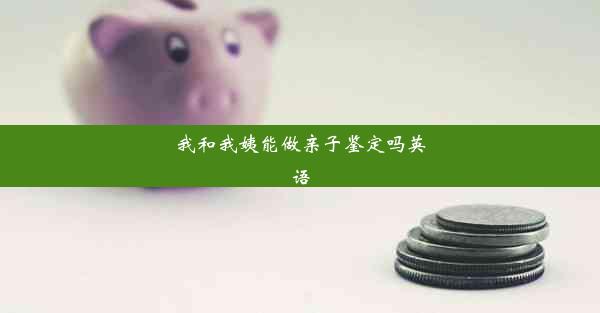
Can My Cousin and I Undergo a Paternity Test? A Heartfelt Journey
Are you ever caught in a dilemma where you question the bond between you and your cousin? Have you ever wondered if you could be more than just family? In this heartfelt journey, we delve into the possibility of undergoing a paternity test between a cousin and an aunt. Let's explore the emotional, legal, and scientific aspects of this complex situation.
Understanding the Emotional Aspect
The emotional aspect of a paternity test between a cousin and an aunt is incredibly delicate. It involves not just the individuals involved but also their families. Here are a few points to consider:
1. Family Dynamics: The revelation of a biological connection can disrupt the existing family dynamics. It's important to understand how this news might affect everyone involved.
2. Trust and Betrayal: Discovering that you share a biological connection with someone you thought was just a cousin can lead to feelings of betrayal or mistrust.
3. Emotional Support: The individuals involved may require emotional support from family, friends, or professionals to navigate through this complex situation.
Legal Considerations
Before considering a paternity test, it's crucial to understand the legal implications. Here's what you need to know:
1. Consent: Both parties must give their explicit consent to undergo the test. This includes the cousin and the aunt, as well as any other family members who might be affected by the results.
2. Privacy Concerns: Paternity tests are private matters, and it's essential to ensure that the results remain confidential.
3. Legal Rights: Understanding the legal rights and obligations of each party is crucial, especially if the test reveals a biological connection.
Scientific Process of Paternity Testing
The scientific process of a paternity test is a fascinating journey. Here's how it works:
1. Sample Collection: The test requires a sample of DNA from both the cousin and the aunt. This can be done through a simple cheek swab.
2. DNA Analysis: The collected DNA samples are then sent to a laboratory for analysis. The lab compares the genetic markers between the cousin and the aunt.
3. Result Interpretation: The laboratory provides a percentage of probability that the cousin is the biological child of the aunt. A result above a certain threshold (usually 99.9%) is considered conclusive.
Impact on Personal Relationships
The outcome of a paternity test can have a significant impact on personal relationships. Here are a few scenarios:
1. Strengthening Bonds: If the test confirms a biological connection, it might strengthen the bond between the cousin and the aunt.
2. Acceptance and Rejection: The cousin might feel a sense of acceptance or rejection based on the results, which can affect their self-identity.
3. Family Dynamics: The family as a whole might need to adjust to the new information, which could lead to both positive and negative changes.
Seeking Professional Advice
Considering the emotional, legal, and scientific complexities of a paternity test between a cousin and an aunt, seeking professional advice is essential. Here's why:
1. Psychological Support: A therapist or counselor can provide emotional support to the individuals involved.
2. Legal Guidance: A lawyer can help navigate the legal aspects of the test and ensure that the rights of all parties are protected.
3. Scientific Expertise: A reputable laboratory can ensure that the test is conducted accurately and the results are reliable.
In conclusion, undergoing a paternity test between a cousin and an aunt is a complex decision that involves various emotional, legal, and scientific aspects. It's important to consider the potential impact on personal relationships and seek professional advice to ensure that the process is handled with care and respect.

